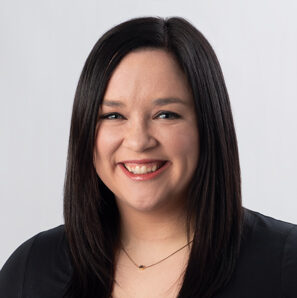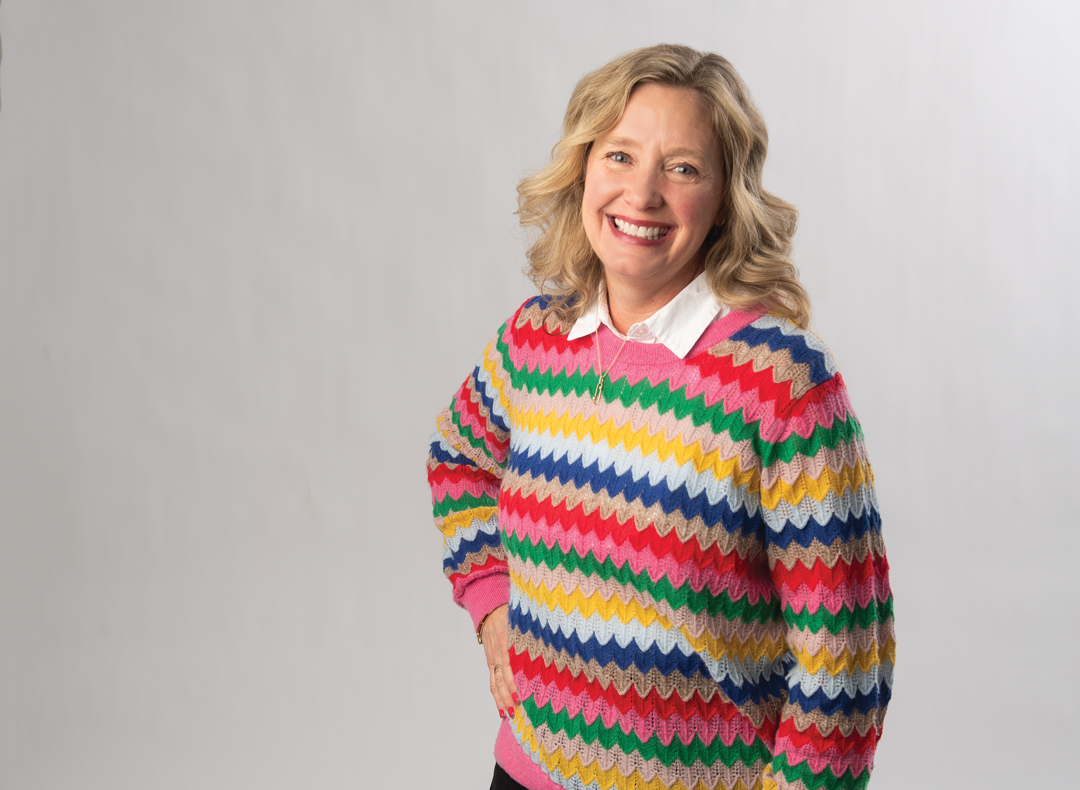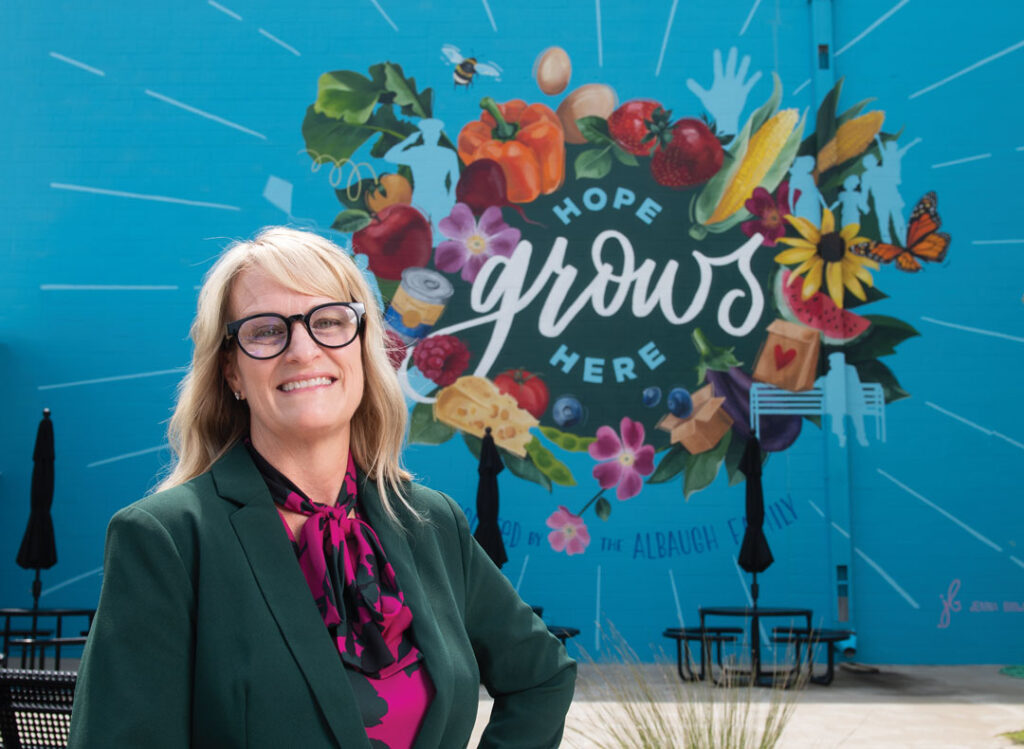A Closer Look: Alissa McKinney
Executive director, Above + Beyond Cancer

Macey Shofroth Feb 21, 2025 | 6:00 am
5 min read time
1,104 wordsA Closer Look, Nonprofits and PhilanthropyAlissa McKinney decided she was ready for a change. She’d worked on multiple political campaigns and spent nearly 20 years fundraising for nonprofits. She landed a position at a for-profit business and decided to take the leap.
It only took nine months for nonprofit work to call her back.
McKinney began serving as executive director for Above + Beyond Cancer in February 2024. Founded in 2011, the nonprofit provides therapeutic programs for cancer survivors and their loved ones.
Her past experience as director of development for Blank Children’s Hospital prepared her to lead the cancer nonprofit as it plans sustainable growth, she said.
“I was in the health care space for so long, so the health care world makes sense to me,” McKinney said. “This position means I meet different people, but I’m still comfortable within the health community and understand how it works.”
In her new role, she leads Above + Beyond’s fundraising efforts and has been guiding the organization’s strategic planning.
The Business Record sat down with McKinney to learn about her work to expand Above + Beyond Cancer’s program offerings and plan for its future.
This Q&A has been lightly edited for clarity and brevity.
What is it about nonprofit work that attracts you?
I’ve just always been in that space. Even in politics, although it’s not nonprofit, you’re still very committed to a cause, a person or an ideal. I worked at Blank Children’s Hospital for so long that I was able to share in different patient and family journeys. There’s so much value in that work. So when I went to for-profit work, I was missing that connection to a greater purpose. I really like knowing that I’m making a difference.
Between Above + Beyond Cancer and Blank Children’s Hospital, you’ve spent quite a bit of time working in health care. Why is that a cause you care about?
Everyone’s touched by cancer. When you’ve been in that setting, you see what families and patients go through and how things can help them, even if the outcomes aren’t what they wanted. There are still ways to provide care and comfort to people during that journey. You’re really able to see those dollars and that impact at work.
This job with Above + Beyond Cancer was attractive because I had worked in the pediatric side for so long, I knew it’d be a challenge to be on the adult side. It was kind of an extension of what I had been doing, but a new challenge. We’re walking alongside people who are just diagnosed, or in the middle of treatment or maybe living with cancer. We can make a difference for the survivors and see people on this transformational journey.
What needs does Above + Beyond Cancer fill in the health care space?
We provide things outside of what a hospital provides and outside of treatment that can help people have a better experience as they’re going through cancer, here and after. We have different mindfulness programs. We know exercise can help with better outcomes, so we have several medical, evidence-based programs like aquatics, or hiking and yoga in the park or our new rowing program. Any given week, we provide around 20 or so different classes. There are lots of different things available to people of all abilities. We want to meet the needs that we’re seeing in the cancer community.
Both hospitals in Des Moines have programs and counseling, but we are really around that mind, body and spirit type of programming. We don’t do traditional support groups, but people who participate in our classes build their own community of support throughout their cancer journeys.
Now that you’ve been in your position for almost a year, what kind of goals do you have for the organization?
A long-term goal for the organization is to start growing our programs in other communities. Most of our in-person programming is in the Greater Des Moines area. We have virtual programs, and our hotel program is open to anyone in the state who lives more than 50 miles from their treatment center and needs accommodations, but our Optimal Living Program is really in Des Moines. Rural Iowa is an underserved area. We can’t do programming in every community in Iowa, but how can we provide virtual programming, or how do we work with different cancer centers in the state to help?
We haven’t done a lot of programming in the Black and brown communities, so we’re trying to be a lot more present so people trust us. Not only are we not serving people in some underserved communities, but these communities also have higher incidences of cancer. It’s important for us to be looking at how we can provide programming in spaces people are comfortable coming to.
I was assigned the goal of strategic planning, so we are currently going through that process. This will tell us a lot about where we want to go and how we want to grow. How do we grow in a reasonable way that we can sustain?
Cancer rates in Iowa continue to grow. How does that affect your strategic goals?
Iowa has the second-highest incidence of cancer in the country, and we’re the only state that continues to increase. So I think that makes it even more important that we serve more people in Des Moines, and then we can start expanding outward. We know that because we continue to have higher rates of cancer, we know more folks are going to come to us for referrals.
We want to increase programming folks can use in other parts of Iowa where we’re never going to be able to be present. Bigger cities might be available, but that’s not always convenient. If you’re going through treatment, you don’t feel good and you probably don’t want to drive somewhere. One of our goals this year is to do some new program videos that will be up on our website for folks to use anytime they want. We also want to partner with clinics in different communities. How do we work with their physicians to share information that people can use? It’s building up our communication and our network of medical professionals in the state.
At a glance
Age: 56
Hometown: Colo, Iowa
Family: Two daughters, Emma, 29, and Isabel, 25, and a longtime partner, Matt.
Education: Bachelor’s degree in communications from Simpson College
Activities: Outside of work, she enjoys traveling, gardening, and cooking. Having grown up on a farm, she’s a supporter of 4-H and sits on the Iowa 4-H Foundation Board.
Contact: alissa@aboveandbeyondcancer.org

Macey Shofroth
Macey Shofroth is the Fearless editor at Business Record. She covers gender, nonprofits and philanthropy, HR and leadership, diversity, equity and inclusion.










